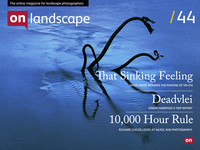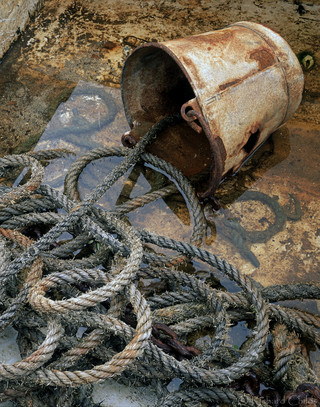Richard Childs talks about Inspiration and Perspiration
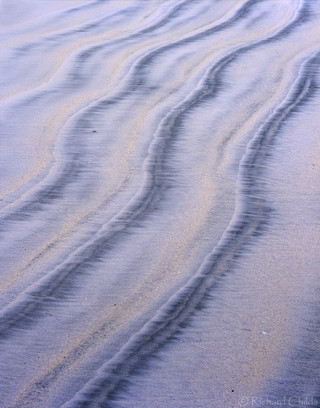 For a long time now I have been intrigued by the number of photographers (professional and amateur) who are, or have been involved with music to some extent in the past. Whether that be playing an instrument ( sometimes as a professional) or writing music for fun or to accompany their images or as I have done. I wouldn't be as interested if an artist had worked in two visual art forms, one would have perhaps expected some photographers to paint and some painters to make successful images with a camera ( although in my experience I have found few artists that have succeeded in this). Yet out there are many photographers that have and often continue to play instruments to a reasonable standard and therefore have the joy of a variety of ways to express themselves. It's fascinating too how often music and visual arts share terminology, music described as being colourful, light or dark, images described as harmonious and lyrical and of course both require composition. While I touch upon the artistic merits of music and photography it is more the discipline involved in becoming successful as an artist photographer and/or a musician that I am interested in.
For a long time now I have been intrigued by the number of photographers (professional and amateur) who are, or have been involved with music to some extent in the past. Whether that be playing an instrument ( sometimes as a professional) or writing music for fun or to accompany their images or as I have done. I wouldn't be as interested if an artist had worked in two visual art forms, one would have perhaps expected some photographers to paint and some painters to make successful images with a camera ( although in my experience I have found few artists that have succeeded in this). Yet out there are many photographers that have and often continue to play instruments to a reasonable standard and therefore have the joy of a variety of ways to express themselves. It's fascinating too how often music and visual arts share terminology, music described as being colourful, light or dark, images described as harmonious and lyrical and of course both require composition. While I touch upon the artistic merits of music and photography it is more the discipline involved in becoming successful as an artist photographer and/or a musician that I am interested in.
Before I go further I would like to say that this matter constantly throws up more questions for me than it answers which is why it has taken so long to write and why hopefully together we can come to some agreement and find some answers. I would also take this opportunity to say that it is not my intention to upset anyone by suggesting that one art form is easier to execute or perfect than another or that the effort put in necessarily gives a particular art form more gravitas ( the battle that is often fought on behalf of photographers in the face of criticism from producers of other visual media). I will also take this time to apologise if I don't mention your favourite musicians among my samples or worse still berate one of your idols.
My first question thrown out to you therefore is this; who for you is/was the greatest landscape photographer and why? Of course there will be many different answers and reasons as well as all the usual questions ( Is it landscape? etc). There are so many styles with their iconic pioneers going back through history. I'm not going to name my heroes yet but I will say why they are such. It's firstly because whenever I see new work by them I often find myself with a great smile across my face that I simply can't wipe off. It's the same smile I get when I hear an inspirational solo at a Jazz gig or in a concert hall, the one that shows that I can't believe what I'm experiencing but know that it is something truly special. For the most part this still comes from viewing great images made on film and in music from performers who really have paid their dues over countless years perfecting their craft.
In recent weeks we have been treated to the spectacle of the World's finest athletes coming together to contest their skills. Skills that we were told again and again were developed and honed through thousands of hours and many years of laborious and often painful work. For the most part by people who sacrificed their teenage years in the pursuit of excellence with little prospect for most of substantial financial gain ( but perhaps a lifetime supply of free anti dandruff shampoo). Thankfully this dedication to one pursuit has been acknowledged by the media and will hopefully strike a chord with the general public who in these austere times perhaps find the salaries chased by our footballers a touch distasteful. Sadly ( and in my opinion) the music of the games fell far short of showcasing some of the musical talent that Britain has to offer, churning out instead a bunch of has beens and poor quality performers.
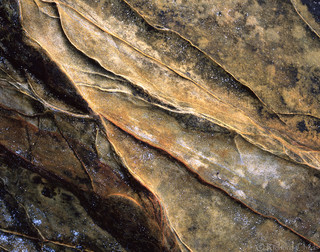
There has been a general understanding that to become a master of something takes 10,000 hours ( 3 hours per day for 10 years). The theory goes as far as saying that you don't even need an inate talent for whatever you choose to do, it's simply down to 10,000 hours of focused, applied work. My experience as both a professional musician and photographer is that this is nonsense. For example a rank and file Second Violinist in a top orchestra will most probably have played for fifteen years before gaining any professional qualifications from a music college. They will then have continued to practice for five or more hours per day in preparation for auditions for work on top of any performing they would do. Having worked hard enough to beat off the stiff competition and gain a place in the orchestra they would continue to practice hard to learn the new work and to hopefully move up through the ranks or at least maintain a standard to remain in the orchestra. That's just someone who sits, almost invisible in the string section of an orchestra. The virtuoso soloist will often have played for up to ten hours per day from a staggeringly early age and be blessed with that magic ingredient, true talent. This clip of Korean Violinist playing Beethovens Violin Concerto actually shows a stage full of hard working and talented musicians plus a truly gifted and soloist.
Having myself returned to performing last Christmas I have been putting lots of time into getting my playing back up to standard. With no car and a knee injury I was able to practice for up to seven hours a day for nearly six months (about 900 hours). I'm back to where I was in 2004 but I'm not happy with that standard and intend to press on now and improve further. Many of my favourite drummers have been around for years but just get better and better with age (and practice). They all continue to take lessons from other professionals in an attempt to broaden their knowledge and better their playing. I reckon that many of them will have put in nearly 100,000 hours of solo practice in their climb to the top.
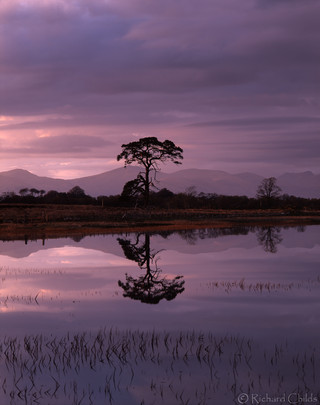
So back to photography and why I think things have gone a bit wrong in recent years. Being heavily based around technology the public's perception is that cameras take photographs not the people wielding them. Sadly, for many photographers (even some pro's) this is the case. Of course there are lots of photographers who exercise the craft of making an image with a camera no matter what it is but for every one there are dozens more these days who employ a scatter gun technique to their work. Fortunately,even with advances in music technology real musicians can't get away with having no skills. Like athletes, to get to the very top they have to put in the years of hard work and sacrifice. There are those that use the celebrity route to stardom but they tend not to last very long.
Feature packed cameras are giving new photographers little incentive to go out, practice and develop true skills before they call themselves professionals. One client on a workshop commented that he had been on an Eos Experience weekend only to be told to leave the camera in program mode and on fully automatic because " that was why Canon packed all those features in. To make life easy for the photographer"). Personally I don't want my photography to be easy, I want it to engross me while I'm out, to be challenged by the subject matter and how me and my camera will try to resolve the problems, that's photography for me, not collecting images. I enjoy my drum practice as much, if not more than performing, as I struggle to overcome new problems. No machine can do what Vinnie Colaiuta can do behind a drum-set because it can't listen and interact with the other musicians to make something with that extra element of human spirit.
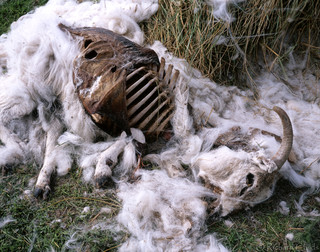
Unfortunately, modern cameras are encouraging photographers to cut corners on their way to professional status. It's a real shame because the easier it appears to get, the more people are encouraged to have a go without having spent the years practicing the craft. Honey-potting is another sign of this laziness creeping in. Most honeypot locations are within a few metres of a road for obvious reasons. There is a wealth of new material on offer if people would walk a bit further but they prefer to repeat what has already been done for an easy capture. Personally I believe that this is why incomes for many professional photographers have been in decline in recent years. The ability to capture acceptable images is getting easier but many of these images are being sold cheaply because their authors aren't attaching any value to them as they sell them into the market place. The consequence of course is a fall in the value of all imagery.
Fortunately there is plenty of hard working talent out there and this needs to be championed. What we need is an Olympics for photography. A world wide competition that will attract in the very best. Photographers that should and will probably dominate the competition but will inspire the rest of us to knuckle down and really set out to stretch ourselves and our image making. Enough of this safe and predictable photography that currently helps to line the pockets of competition organisers, lets get out and make photography proud. Personally I would love to think that maybe some of my images could be on a par with the musical examples provided but I know I've got a long way to go before they will be. That however is a challenge that I savour.
Examples of (just some) truly inspirational musicians. Please take the time to listen and hopefully appreciate how much time and effort has gone into their creation.
Evgeny Kissin Piano
Vladimir Ashkenazy Piano
Dave Weckl Drums
Tommy Emmanuel Guitar
Steve Smith Drums
Arturo Sandoval Trumpet
Jo Jo Mayer Drums

